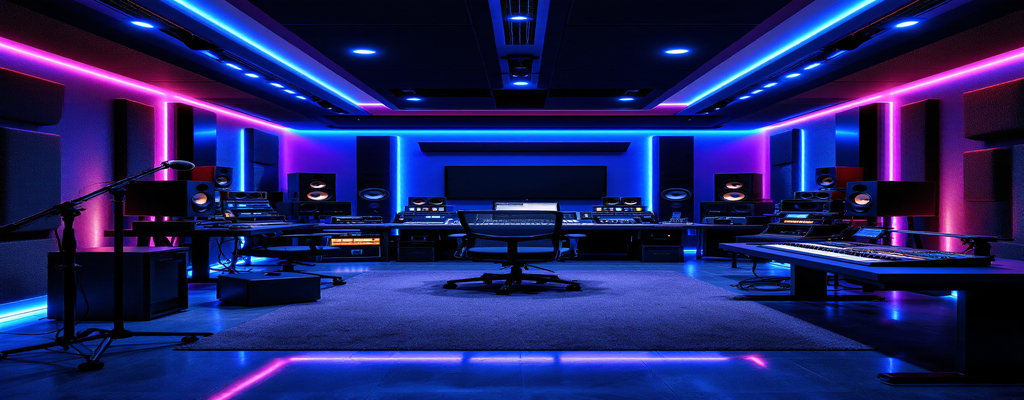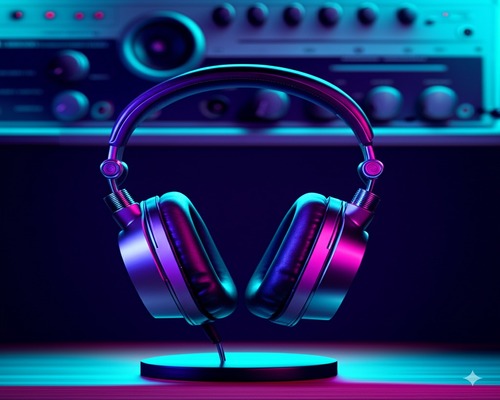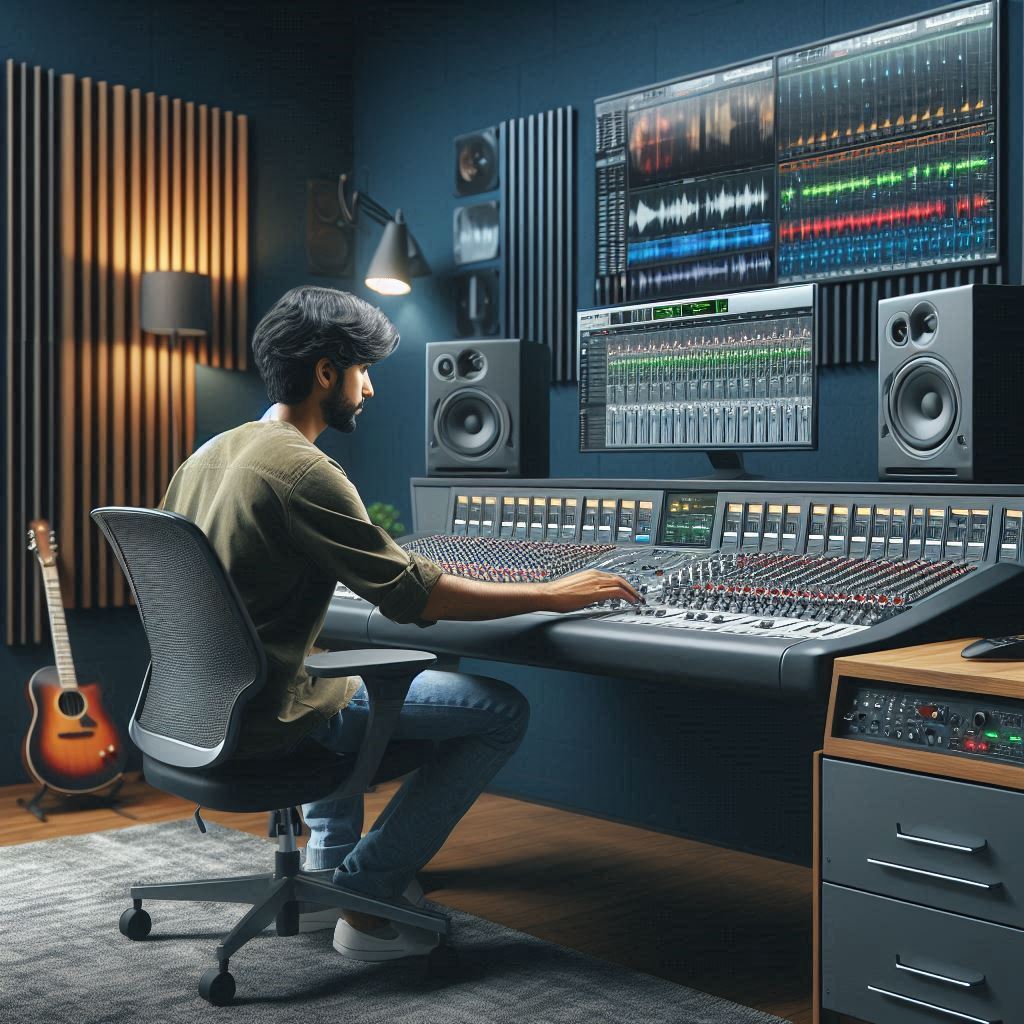
AI music mastering is changing how musicians finish their songs. These smart computer programs help make music sound professional without the high costs of traditional mastering. This guide covers everything about AI music mastering – what it is, how it works, and which services are best in 2025.
What is AI Music Mastering?
AI Music Mastering uses smart computer programs to do the final step in music production. These programs fix the sound quality of songs so they’re ready to be released on streaming services, radio, and other places. Unlike regular mastering that needs a human expert, AI mastering software checks your song against thousands of professionally finished tracks to create the right adjustments automatically.
The technology behind AI audio mastering uses machine learning that’s been trained on tons of professional music across different styles. These systems can spot problems with frequencies, volume levels, and stereo sound, then fix them to make songs sound like commercial releases.
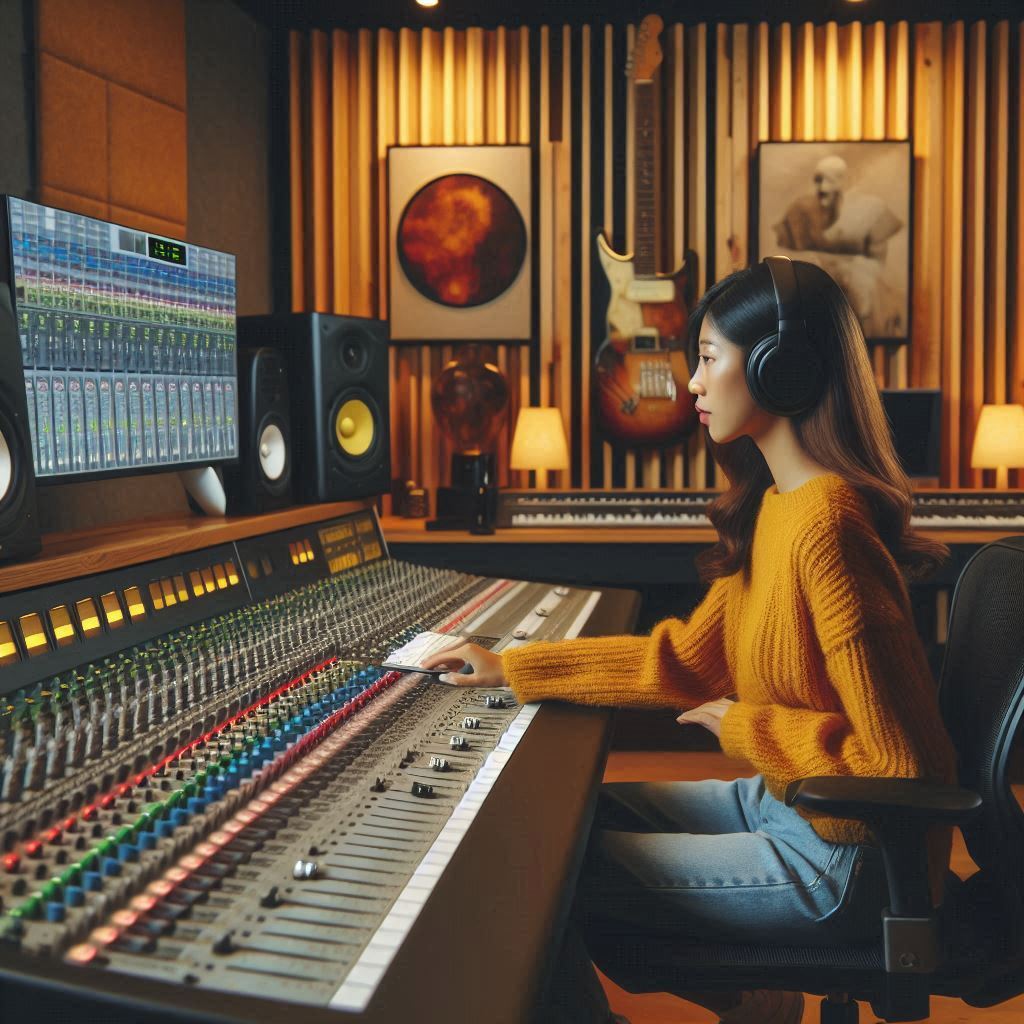
How AI Music Mastering Works
Automated mastering tools look at songs in several steps to make them sound better. First, they check the frequencies, volume range, and stereo image of your mix. Then, using what they’ve learned from thousands of professional songs, the AI applies custom fixes including EQ adjustments, compression, stereo enhancement, and volume maximization. Many services offer different presets for specific music styles, letting you customize while keeping professional quality, as explained by Moises AI.
This automatic approach makes mastering more accessible since you don’t need to know complicated audio engineering concepts. The AI Audio Mastering handles tough decisions about how much compression to use or which frequencies need boosting or cutting, making professional sound available to anyone.
Top AI Music Mastering Services in 2025
Based on what’s available now, several AI mastering services have become leaders in this quickly growing field. Each offers unique features for different needs and workflows.
LANDR AI Music Mastering
LANDR is one of the oldest and most trusted online AI mastering services, used by Grammy winners and over 5 million musicians worldwide. Their special mastering program thoroughly analyzes tracks and creates custom processing for each song. The platform has been used to master tracks for major artists including Lady Gaga, Gwen Stefani, Snoop Dogg, and Seal.
LANDR offers several helpful features:
- Unlimited masters to fix your track until it sounds perfect
- Album mastering to keep all your songs sounding consistent
- Reference track analysis to match commercial releases
- Volume matching to compare original and mastered versions
- Multiple output formats including MP3, WAV, and HD WAV
Masterchannel AI Music Mastering
Masterchannel has changed the traditional mastering approach by offering unlimited mastering sessions at no extra cost. This completely changes how artists approach mastering, allowing for continuous improvements without paying more. Unlike traditional mastering that needed an almost perfect mix before submission, Masterchannel encourages artists to make adjustments throughout production.
This AI sound mastering service works like an AI helper, helping artists get their desired sound through a back-and-forth process of mixing adjustments and remastering. This not only improves the final product but also helps producers develop their mixing skills over time by understanding how their mix decisions affect the mastered result.
Kits.ai AI Music Mastering
Kits.ai provides artificial intelligence mastering software with flexibility and genre-specific options. Their platform includes advanced reference track features, allowing users to upload a reference track and have their music mastered to match that specific style. This reference-based approach helps artists achieve sounds similar to current commercial standards in their genre.
For musicians interested in how AI is changing music production across different styles, there’s useful information about AI in hip-hop and rap that shows how these technologies are being adopted in different genres.
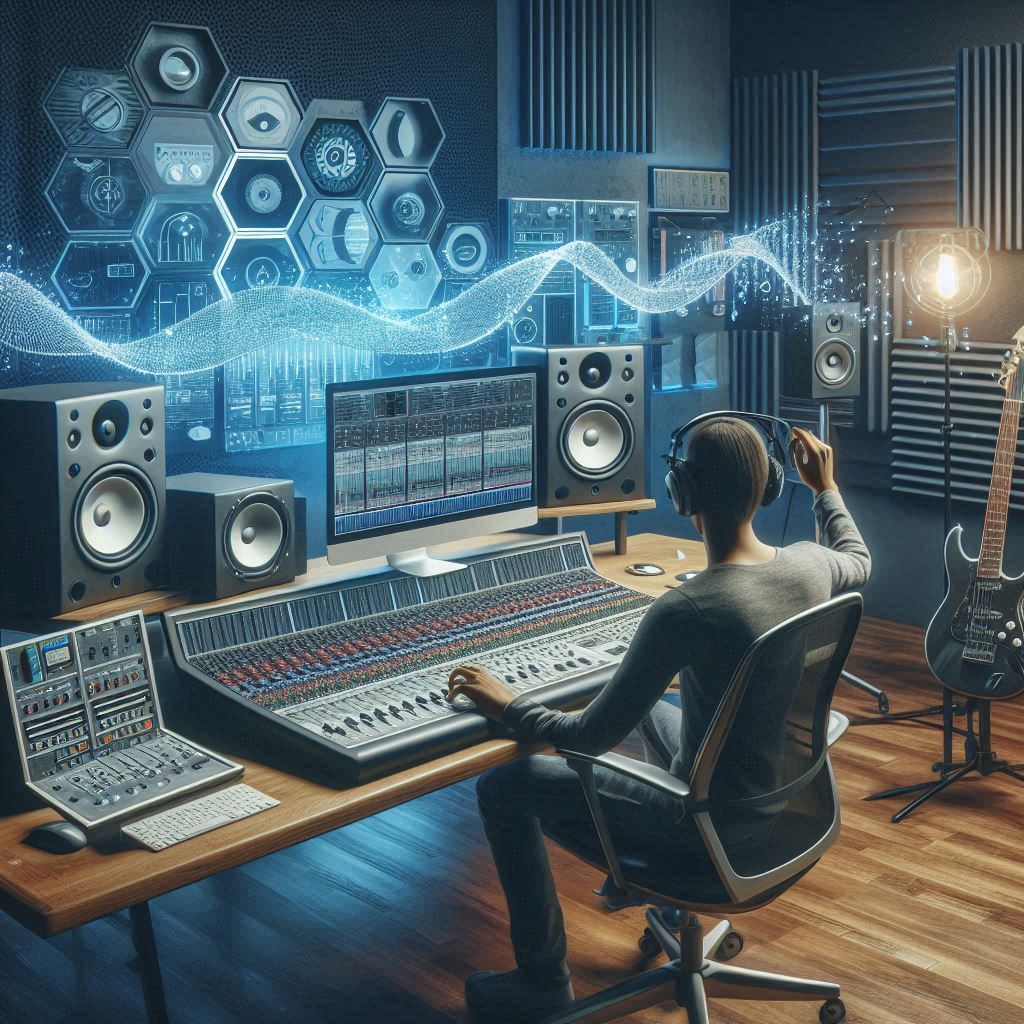
Benefits of AI Music Mastering
Cost-Effectiveness of AI Music Mastering
Traditional mastering with human engineers typically costs hundreds of dollars per track, especially when multiple revisions are needed. AI music production services dramatically reduce this cost, offering subscriptions or pay-per-track options that are much more affordable. Many platforms like Masterchannel even provide unlimited mastering attempts within their subscription plans, removing the cost concerns that often limit experimentation.
This cost reduction makes professional-quality mastering available to independent artists working with tight budgets. Artists can now spend more money on other things like promotion, videos, or live shows while still getting commercially competitive sound quality.
Digital audio mastering with AI gives results almost instantly, compared to the days or weeks often needed when working with human engineers. Services like LANDR and Kits.ai can process tracks in seconds or minutes, giving immediate feedback that keeps creative momentum going [source: Kits.ai]. This quick turnaround is especially valuable for:
- Artists working with tight release schedules
- Musicians who want to quickly hear how their mix sounds when mastered
- Producers making last-minute adjustments before distribution
The efficiency goes beyond just processing time – many AI platforms offer easy-to-use interfaces that remove the communication problems that sometimes happen between artists and mastering engineers [source: Blog.masterchannel.ai]. This streamlined workflow lets artists focus on their creative vision without getting stuck in technical discussions or waiting for feedback.
Accessibility of AI Music Mastering
AI music mastering tools are typically web-based or available as plugins, making professional mastering accessible to anyone with internet access. This removes geographical barriers that previously limited access to quality mastering engineers, who tend to be concentrated in major music cities [source: Landr.com]. Now, artists from anywhere in the world can access professional-quality mastering services.
For a broader overview of how AI is changing music creation, the article on AI music production in 2025 provides valuable context about these emerging technologies.
Real-World Use Cases of AI Music Mastering
Case Study: Independent Artists Using AI Music Mastering
Independent artists represent one of the largest groups benefiting from ai music mastering services. For example, LANDR’s platform has been used by over 5 million musicians globally, including both independents and major label artists [source: Landr.ai].
A typical workflow involves an independent artist finishing their home-studio mix, then uploading it to a service like LANDR or Masterchannel. The artist can pick from:
- Genre-specific presets
- Upload a reference track from a commercial release they like
- Adjust intensity settings based on their preferences
- Choose from different mastering styles
Within minutes, they receive a professionally mastered track ready for distribution to streaming platforms like Spotify or Apple Music, all without exceeding their limited budget [source: Kits.ai].
This accessibility has enabled countless independent releases that achieve sound quality competitive with major label productions. The effect is particularly noticeable in genres like electronic music and hip-hop, where independent artists now regularly achieve streaming numbers comparable to label-backed acts.
For those specifically interested in electronic music production, the article about AI in electronic dance music provides more specific information about how these technologies are being used in that genre.
Case Study: AI Music Mastering for AI-Generated Music
With more AI music generation tools available, there’s growing demand for specialized mastering approaches for these unique productions. AI-created music often presents distinct challenges, as it typically comes as a finished mix with no way to go back to the mixing stage for adjustments [source: Reddit.com].
When working with AI-generated tracks, mastering tools need to fix common issues like:
- Inconsistent volume levels
- Stereo imaging problems
- Frequency masking between elements
- Unnatural dynamic changes
Compression techniques are particularly valuable for smoothing out dynamics, making sure quieter parts don’t get lost and louder sections don’t overwhelm. Similarly, stereo imaging tools help control the width of the mix, fixing the tendency of some AI-generated music to sound either too narrow or too wide [source: Reddit.com].
Services like DIKTATORIAL Suite have been created specifically to address these unique challenges, offering “virtual sound engineer” capabilities with text prompt controls, allowing users to improve and enhance AI-generated audio with specialized processing [source: Producthunt.com].
AI Music Mastering Revolution: Adaptive Content-Aware Processing
The newest ai music mastering systems include content-aware processing that adapts to specific elements within a song. This revolutionary approach identifies individual instruments, vocals, and sonic elements, then applies customized processing to each component rather than the mix as a whole.
This content-aware technology represents a fundamental shift in automated mastering. Traditional mastering treats a song as a fixed entity, but adaptive content-aware processing reconstructs the track’s component parts using AI, then optimizes each element independently before recombining them. The result preserves the artistic intent of the original mix while enhancing clarity and definition far beyond what conventional mastering can achieve.
Early versions of this technology show particular promise for genres with complex sound content like:
- Orchestral music
- Jazz recordings
- Dense electronic productions
- Multi-layered hip-hop beats
By identifying and separately optimizing conflicting frequency ranges between instruments, these systems solve masking issues that even experienced mastering engineers struggle to fix through traditional techniques.
This unique approach also enables genre mixing mastering profiles that can process fusion styles with unprecedented effectiveness. A track combining orchestral elements with electronic beats, for instance, receives processing that respects the distinct mastering requirements of both genres rather than applying a one-size-fits-all approach.
For those interested in how AI is changing orchestral music production, the article on AI in classical and orchestral music provides more specific information.
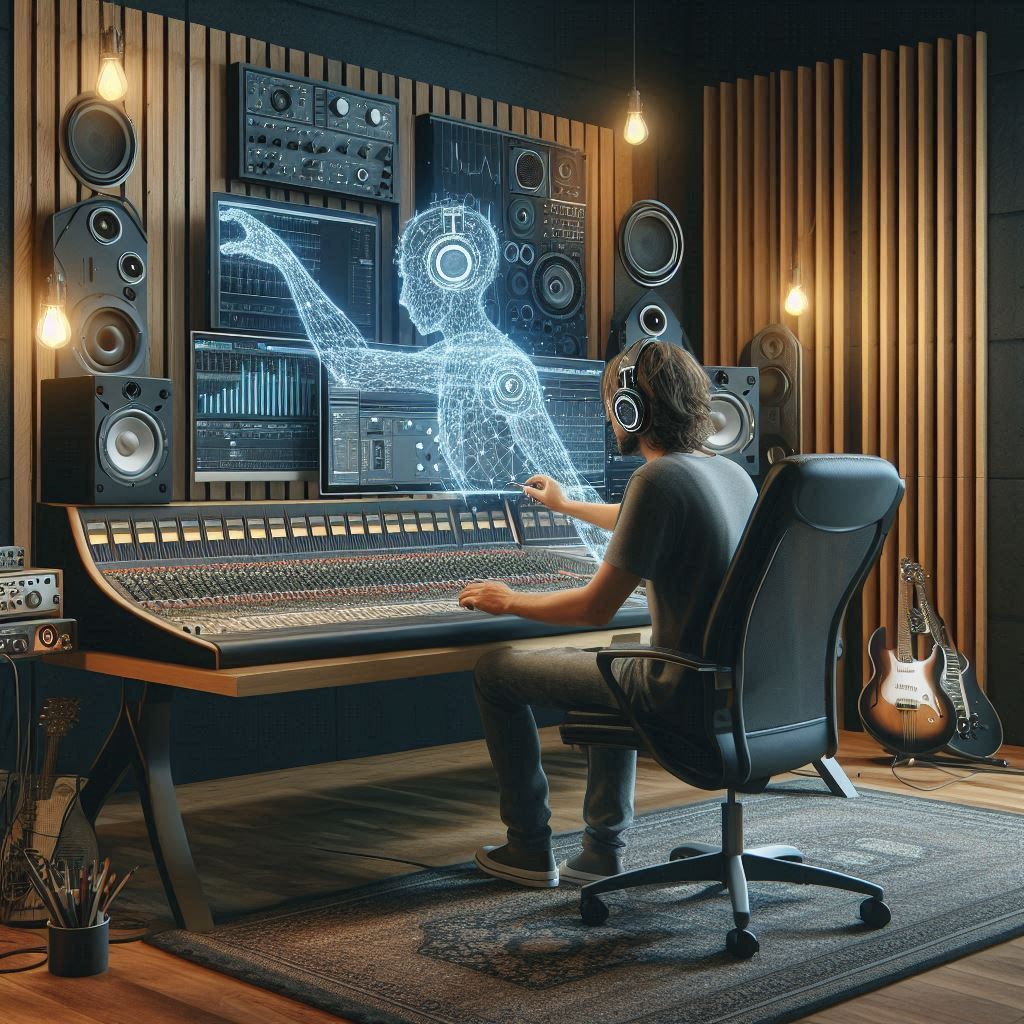
How to Get Started with AI Music Mastering
Preparing Your Mix for AI Music Mastering
While ai music mastering can work with imperfect mixes, better preparation leads to better results. Start by making sure your mix has good balance between elements and fix major issues like too much muddiness or harshness. Leave enough headroom (avoid clipping) and export your mix as a high-quality WAV file (at least 24-bit, 44.1kHz) for the best processing.
Pay special attention to the bass frequencies, as they often cause challenges for AI systems. Try comparing your mix against commercial tracks in your genre before submission to spot any significant balance issues. While ai audio mastering can enhance your mix, it works best when starting with a solid foundation.
Step-by-Step Guide to Your First AI Music Mastering
- Choose an ai mastering service based on your needs and budget
- Upload your mixed track to the platform
- Select appropriate presets or upload a reference track if available
- Review the preview of your mastered track
- Make adjustments to settings if the platform allows
- Download your mastered track in your preferred format
- Compare with your original mix and with commercial releases
- If needed, adjust your mix and repeat the process
Most platforms offer free trials or preview options that let you hear the results before paying. Take advantage of these to compare different services and find the one that best complements your music style.
Common Challenges in AI Music Mastering and Solutions
Dealing with Genre-Specific AI Music Mastering Needs
Different genres have distinct mastering requirements—EDM typically needs more compression and loudness than jazz, for instance. Choose ai music production services with genre-specific presets like those offered by Kits.ai or use reference tracks that match your genre. Some platforms allow you to specify your genre to help the AI make appropriate decisions.
For genres with unusual sound characteristics or niche subgenres, consider using reference track mastering features where available. By uploading commercial releases within your specific subgenre, you guide the AI toward processing decisions appropriate for your style, even if it doesn’t have dedicated presets for your exact genre.
Musicians working with specific genres might find useful information in articles like AI beat maker for hip-hop that cover tools designed for particular styles.
Overcoming Limitations of AI Music Mastering
AI music mastering may struggle with very unusual tracks or specific creative decisions that are very different from its training data. To overcome these limitations, consider:
- Using AI mastering as a starting point and then making minor adjustments manually
- Trying different intensity settings within the same service
- Experimenting with genre selections that might not match but give better results
- Processing different frequency ranges separately (like bass and treble)
- Running your track through multiple AI services to compare results
Services like Masterchannel support this back-and-forth approach, allowing you to refine your mix based on mastering results and then remaster until you achieve your desired sound.
Another good strategy is to try multiple AI services, as each uses different programs with varying strengths. A track that doesn’t work well with one service might get excellent results with another, due to differences in their underlying AI models and processing approaches.
Comparing AI vs Human Mastering Engineers
AI music mastering offers significant advantages in cost, speed, and accessibility, but professional human mastering engineers still provide benefits in certain situations. The best ai music mastering services for independent artists have closed the quality gap considerably, but humans excel at understanding artistic intent and making subjective creative decisions.
Human engineers bring decades of experience and can provide feedback on mix issues before mastering. They’re also better at handling unusual or experimental music that falls outside the “normal” sound that AI systems have been trained on. However, for many independent artists and producers, the quality-to-cost ratio of automated mastering makes it the practical choice.
A practical approach is to use ai audio mastering for:
- Demos and works-in-progress
- Projects with tight budgets
- Quick releases and time-sensitive material
- Tracks that fit well within established genres
While saving human mastering for career-defining releases where every detail matters. Many artists also use AI mastering as a reference point before sending tracks to human engineers, helping them communicate their desired sound more effectively.
Budget-Friendly AI Audio Mastering Solutions
For artists working with limited budgets, several budget-friendly ai audio mastering solutions provide professional results without breaking the bank. Services like eMastered and CloudBounce offer pay-as-you-go options that can cost as little as $5-15 per track, while subscription plans from companies like LANDR and Masterchannel provide even better value for prolific creators.
Free trials and credit-based systems let you test services before committing, while reference track capabilities help achieve commercial-quality results even with entry-level plans. Many platforms also offer:
- Discounted rates for mastering full albums
- Bulk processing credits at lower per-track costs
- Monthly subscription plans with unlimited mastering
- Special pricing for educational or non-profit use
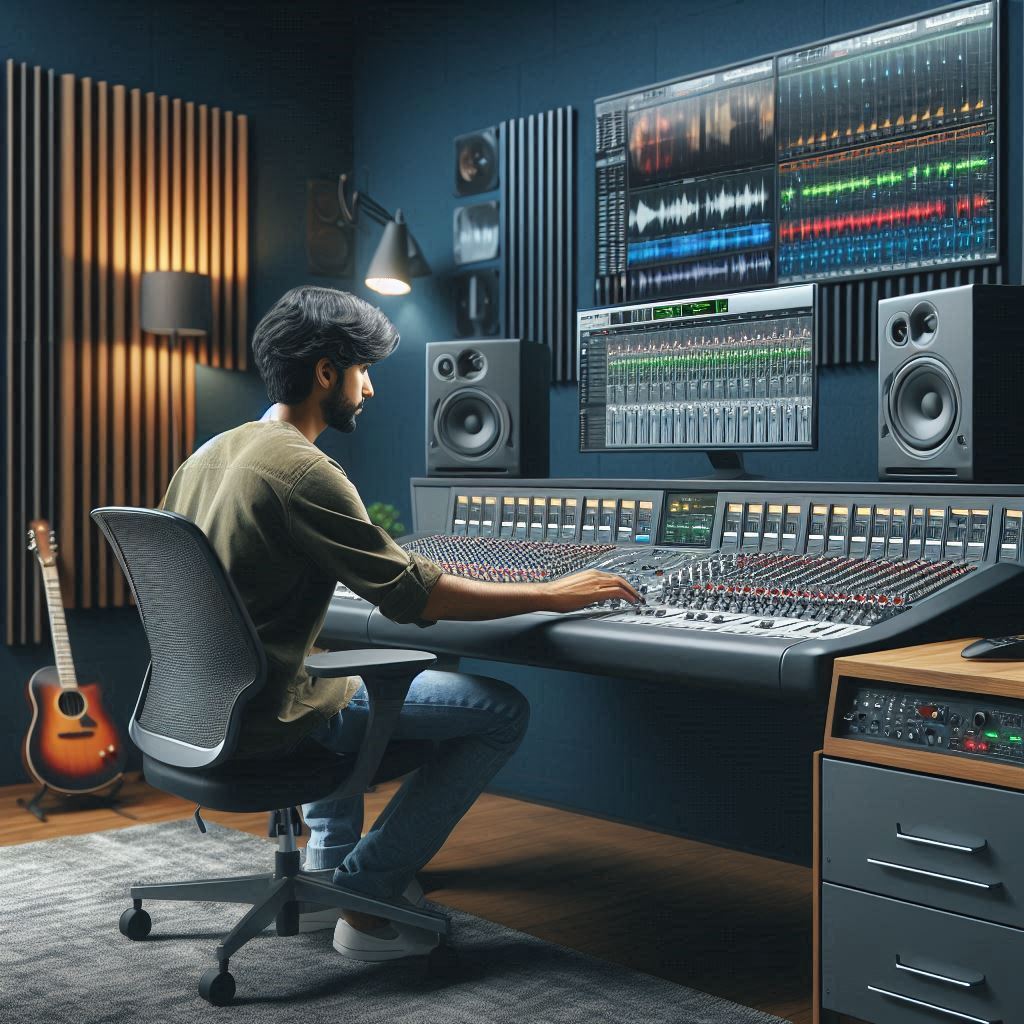
AI Tools Have Changed Music Mastering Forever
Independent artists can now make music that sounds just as good as major labels thanks to ai mastering software. This has helped fuel the explosion of indie music releases we see on streaming platforms today.
What’s Coming Next The world of ai music mastering keeps getting better. Soon we’ll have smarter sound processing algorithms that can pick out and enhance specific parts of a song with amazing accuracy. More producers are using real-time mastering tools that work directly inside their digital audio workstation, letting them hear the finished sound while they’re still mixing.
We’re also seeing ai music production tools that work together across the whole creation process – from writing the song to the final master. As these programs learn to communicate better, they create smoother workflows that understand what you’re trying to achieve artistically.
Voice commands are becoming a thing too, so you can just ask for specific audio quality improvement using normal words instead of technical jargon. This makes the technology much easier for people who don’t have formal training.
Getting Started With AI Mastering
If you want to know how to master your song with ai technology, there are a few simple rules. First, make your mix as good as possible – AI can make good stuff better, but it can’t fix major problems. Next, pick a service that works well for your type of music by trying out free samples.
Using reference tracks is super important when working with ai sound mastering. Pick commercial songs similar to yours – same instruments, same genre. This helps the AI figure out how to process your music correctly.
Trust what you hear and be willing to try different settings or even different services. Each ai music mastering platform has its own strengths, and what works great for one song might not work for another. Always check how your mastered song sounds on different speakers to make sure it works everywhere.
Wrapping Up
AI music mastering has gone from “that might be cool someday” to an essential tool for musicians and producers who work independently. The quality is getting closer to human mastering all the time, while being cheaper, faster, and more accessible.
As the technology gets better, we’ll see even smarter processing and better integration with other music tools. Making professional-quality masters available to everyone is one of the biggest changes in music production recently, letting artists at all levels get great sound without spending tons of money.
Whether you’re putting out your first song or your fifth album, using ai music mastering technology can help you get professional results while focusing more on creating and promoting your music. Music production is becoming more accessible to everyone, and AI mastering is leading the charge in breaking down old barriers to entry in the music industry.
Sources
-
https://www.reddit.com/r/SunoAI/comments/1fbvjqb/mastering_aicreated_songs_a_practical_guide/
-
https://www.producthunt.com/products/masterchannel/alternatives
-
https://blog.masterchannel.ai/you-dont-need-a-perfect-mix-to-master-your-song-with-ai/
-
https://help.moises.ai/hc/en-us/articles/360013615140-What-is-AI-Mastering
